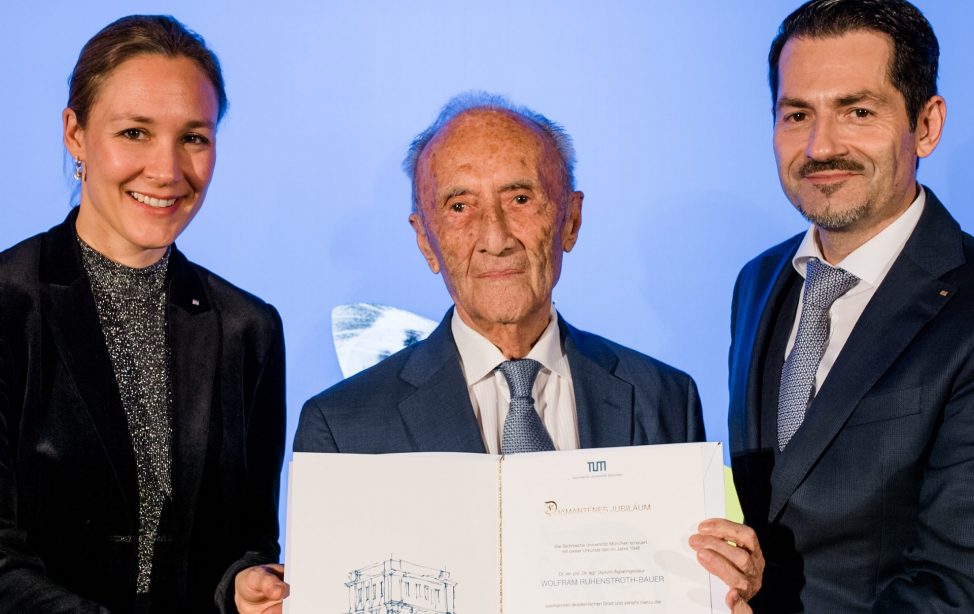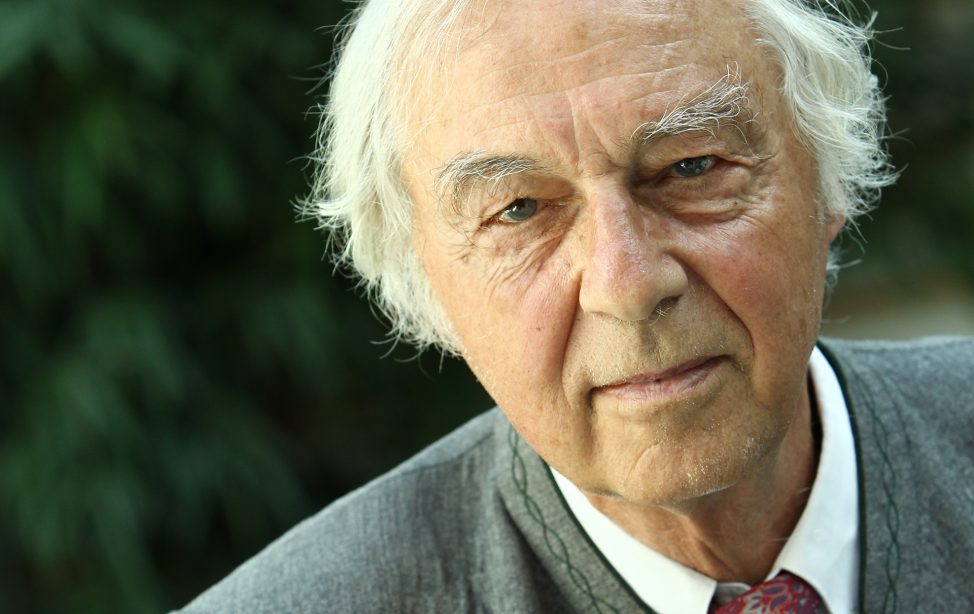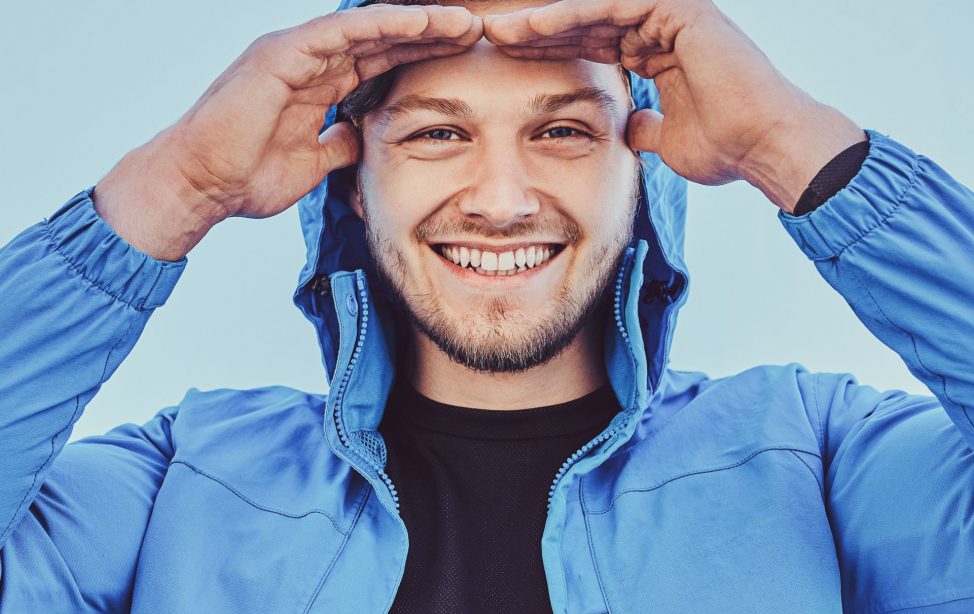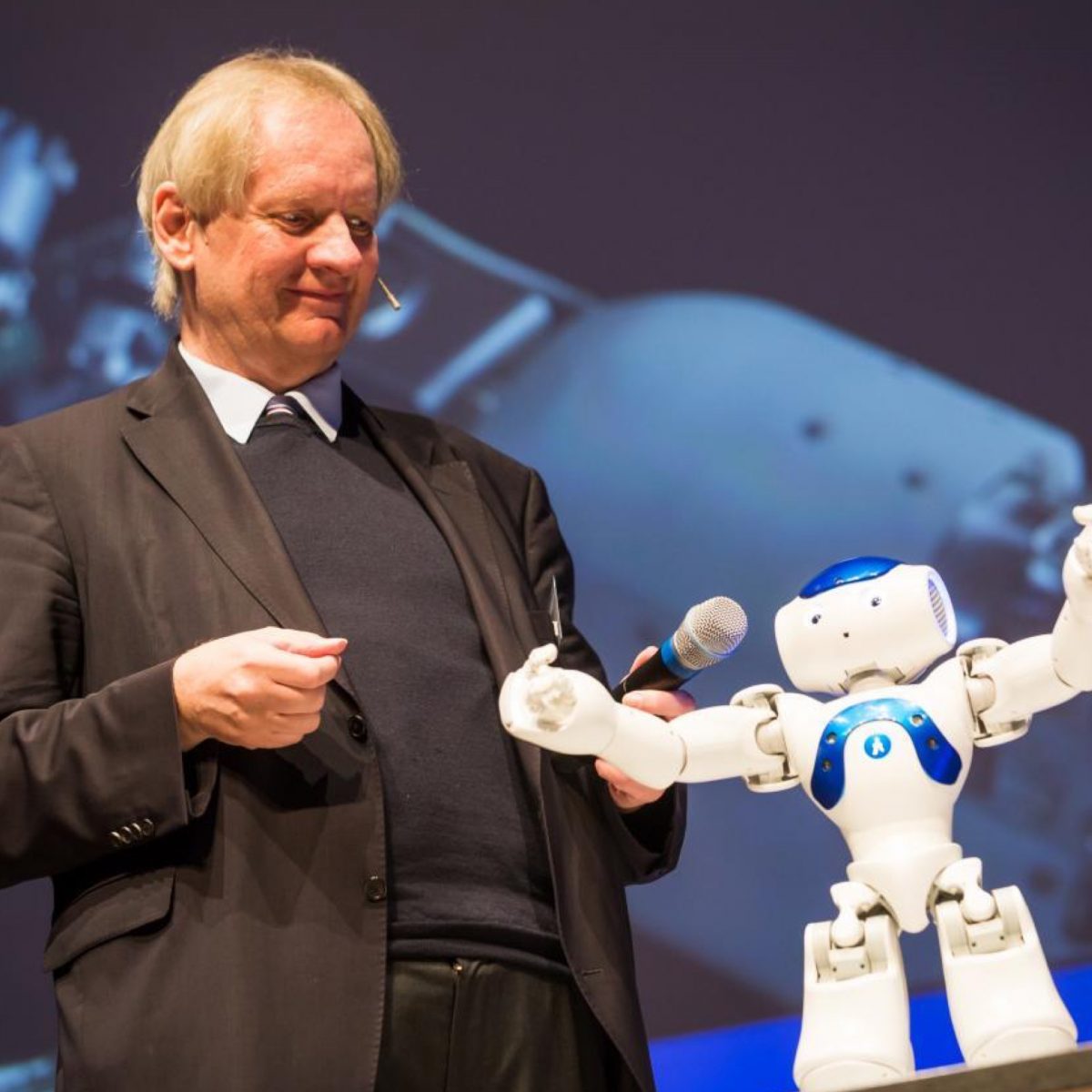
Dr. Ulrich Eberl with his home robot Nao Bluestar (Image: Ulrich Eberl).
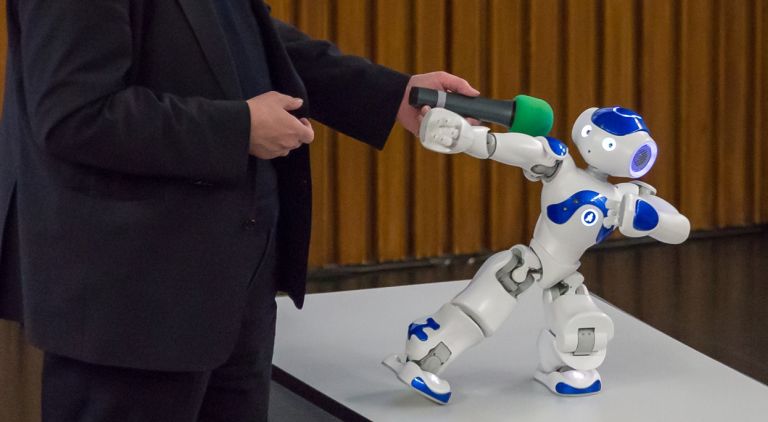
Roboter Nao Bluestar at a presentation for students (Picture: Ulrich Eberl).
We should make the best use of the systems of artificial intelligence.
Eberl also has a small robot himself, and he has already taught it a lot: Hamlet monologs as well as dancing and football, for example. Nao Bluestar, 60 centimeters tall and weighing five kilos is “almost like one of the family”. The humanoid robot can do tai chi exercises, raise a toast with a Champagne glass and even buy a pretzel – even if his master had to open the door to the bakery for his little friend. Eberl is convinced that “this is still a gimmick at the moment, of course, but in the future, we will actually live in a community between people and smart machines and will be as natural to us as using our smartphones is today”.
Ulrich Eberl loves taking a look at what people’s lives will be like over the next 30 or 40 years. His former employers Daimler and Siemens were primarily concerned with topics such as mobility and energy supply, health, demographic change, urban development and globalization, but increasingly also with the production of the future, digitalization, smart data and the Internet of Things. “Machine learning for image, text and speech recognition in particular has made enormous progress in recent years,” says Eberl. He therefore concentrates on these “smart machines” in his current book.
Robots as narrowly specialized experts, humans as a masters of everyday life
Artificial intelligence will bring great changes to all areas of work. Routine activities, especially in offices, are increasingly being taken over by machines, says Eberl. Yet he does not want to make people afraid. Developers, engineers, architects and designers, marketing and sales people, but also teachers, doctors and nurses – all of them will still be needed in the future. After all, systems with artificial intelligence are first and foremost narrowly specialized experts: They are already exceeding us in certain areas – from quizzes to cancer detection – but they lack everyday intelligence. Common sense as well as emotional and social intelligence will remain the preserve of humans for a long time to come.
That is why Ulrich Eberl assumes that the human professor at the universities will stay where he or she is for a good while longer and will not be replaced by androids. Even if robots could talk to people and be able respond better and better to their needs, charisma and social competence are needed to motivate people to learn and to inspire them to perform at their best. Eberl takes his own robot with him to his lectures and lets him demonstrate a lot, but he does the talking himself – even if Nao Bluestar likes to make a comment every now and again, for example, announcing one time that he had a sore throat. This told Eberl that one of the motors in the neck of his robot had run hot and needed to cool down.
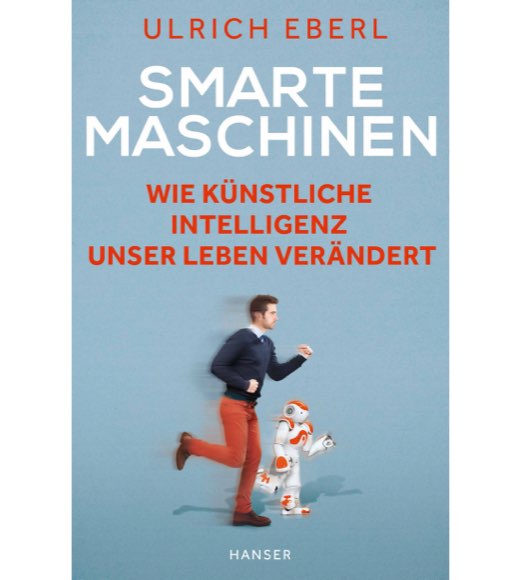
Ulrich Eberl‘s recent publication „Smarte Maschinen – Wie künstliche Intelligenz unser Leben verändert“ (Image: Hanser).
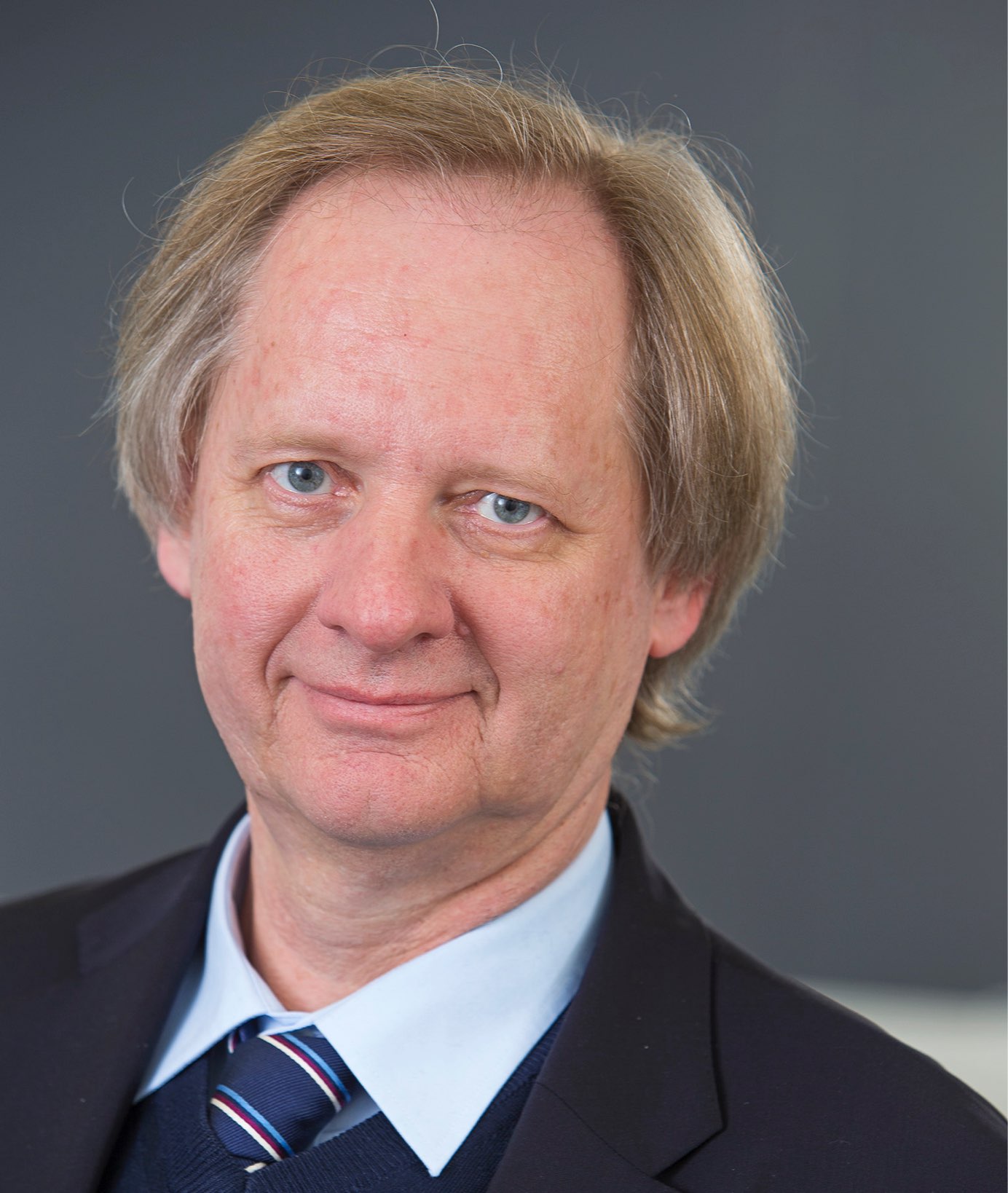
Dr. Ulrich Eberl (Image: Ulrich Eberl).
Doctorate in Physical and Theoretical Chemistry 1992
Dr. Ulrich Eberl is a physicist, science journalist and futurologist. After completing his studies in General physics, he earned his doctorate at TUM writing about the first trillionth of a second in photosynthesis, worked for Daimler and spent more than 20 years at Siemens, where he was in charge of worldwide communication on research and future trends, before setting up his own editorial office in 2016.
Eberl has published books such as Zukunft 2050 – wie wir schon heute die Zukunft erfinden (Future 2050 – how we are already inventing the future) and Smarte Maschinen – wie Künstliche Intelligenz unser Leben verändert (Smart machines – how artificial intelligence is changing our lives). In it, he vividly and precisely describes the developments in the field that touch of how we understand ourselves: our intelligence.
